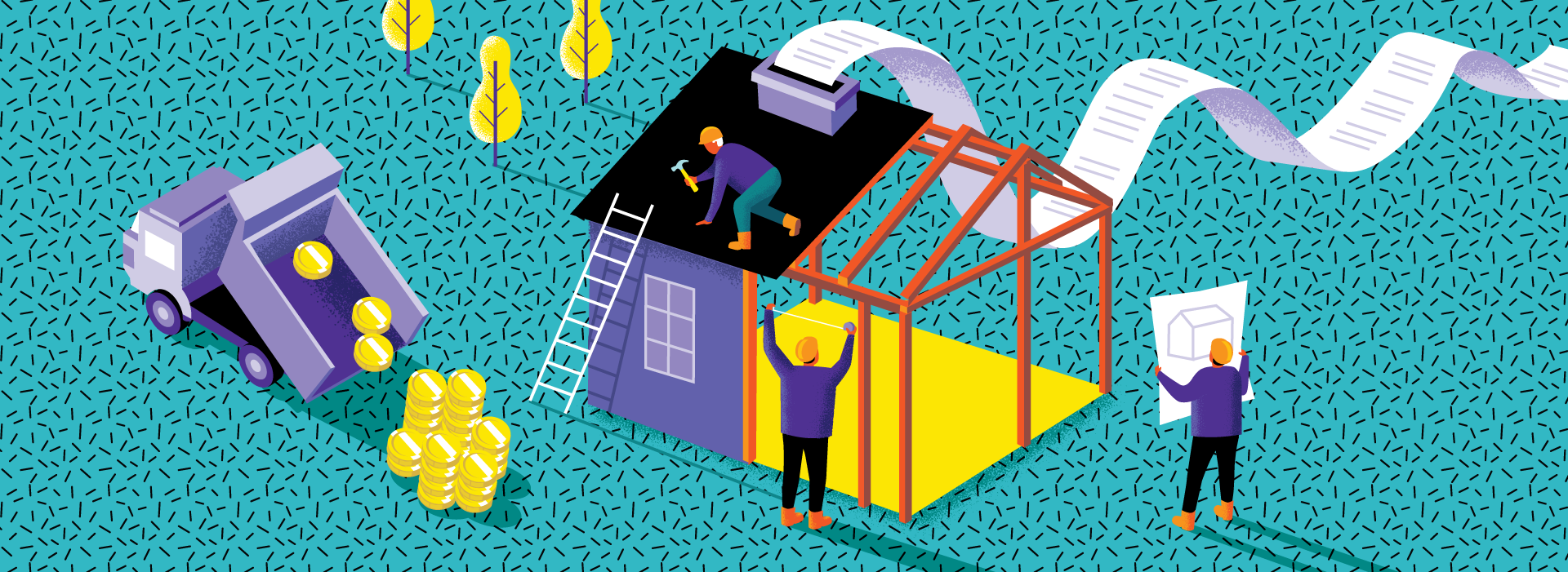3 tax credits and refunds for new homeowners
Tax season is in full swing. Find out which tax credits for new homeowners you could be eligible for.
Every year, taxpayers have until April 30 to file their income tax return. If you've just bought a property, you undoubtedly have enough on your mind without having to think about managing your finances. To help you keep as much money as possible in your pocket, here's how to take advantage of refundable and non-refundable tax credits for new homeowners.
What is a tax credit?
Keep these definitions in mind while reading this article: Refundable tax credits are amounts you can claim even if you have no tax to pay.
Non-refundable tax credits are amounts that reduce or cancel out tax payable.

Provincial and federal tax credits
First-time home buyers' tax credit
If you recently bought your first property, you may be eligible for this non-refundable tax credit, available both provincially and federally. The property must be your principal place of residence for you to qualify. This tax credit is intended to help cover the costs related to the purchase of a first home, such as notary fees, taxes, and appraisal fees. These can be a considerable financial burden when you also have to pay for your down payment and manage your cash flow.
This non-refundable tax credit entitles Quebec residents to claim up to $1,500 federally and up to $1,400 provincially.
For your property to qualify, it must be an existing home or a home under construction, and you and your spouse must not have been homeowners in the four tax years before it was acquired.
Be aware that you can share this credit with your spouse to maximize the benefits, and it cannot be carried over to the following year. When it's time to do your taxes, an expert or accountant will be able to advise you on the best strategy for your situation.

Provincial tax credits and refunds (Quebec)
Financial aid options
Chauffez vert is a provincial government program that offers financial assistance for replacing fossil fuel heating systems and water heaters with units powered by electricity or renewable energy.
The Rénoclimat program helps make homes more energy efficient. Homeowners who meet the eligibility criteria receive personalized advice and financial assistance for the improvement of insulation and sealing, the replacement of doors and windows, and the installation or replacement of certain mechanical systems (e.g., heating, ventilation, heat pump, water heater).
The RénoRégion (in French) program supports low, and moderate, income homeowners living in rural areas. It helps eligible applicants finance work to correct major defects in residences (e.g., exterior envelope, structure, electricity, plumbing, heating, insulation), up to a maximum amount of $25,000.
Good to know
If you have entered into an agreement with a qualified contractor to upgrade your residential waste water treatment system, you may be entitled to an additional refundable tax credit of up to $5,500. This amount is separate from the RénoVert tax credit and valid for tax years 2017 through 2027. You must have entered into the agreement with the contractor after March 31, 2017, and paid the expenses in the tax year for which you are claiming the credit.
Municipalities often offer specific aid or grant programs to attract families or enhance built heritage. Check with yours to find out what's available!
Partial tax rebate for new housing and substantial renovations
Though not a tax credit per se, this rebate provides valuable financial aid to new homeowners. Provided you meet certain conditions, the provincial government will reimburse you for part of the GST and QST you paid if you bought a new or substantially renovated residential unit, including the land it is built on, from a builder.
The rebate also applies if you build a residential unit or have one built, or if you substantially renovate your home or have it substantially renovated.
Keep in mind that this rebate does not apply to the sale of units that are not new, as such transactions are tax-exempt. Either you or the builder may file the application. In the latter case, the builder is required to pay or credit the rebate directly to you.
The maximum amount you can receive is 36 percent of the GST and 50 percent of the QST paid, up to a maximum of $6,300 and $9,975, respectively. The rebates decrease gradually when the purchase price of the land and new or renovated residential unit exceeds a certain value, and they no longer apply once it reaches $450,000 for GST and $300,000 for QST.

To benefit from all the tax credits you're eligible for, do your homework before preparing your income tax return and make sure to provide all necessary forms and documents. There are many other deductions and tax credits, both in Quebec and in Canada, that are unrelated to homeownership. It's every taxpayer's responsibility to look into which ones apply to their situation. Stay informed to avoid missing out!



